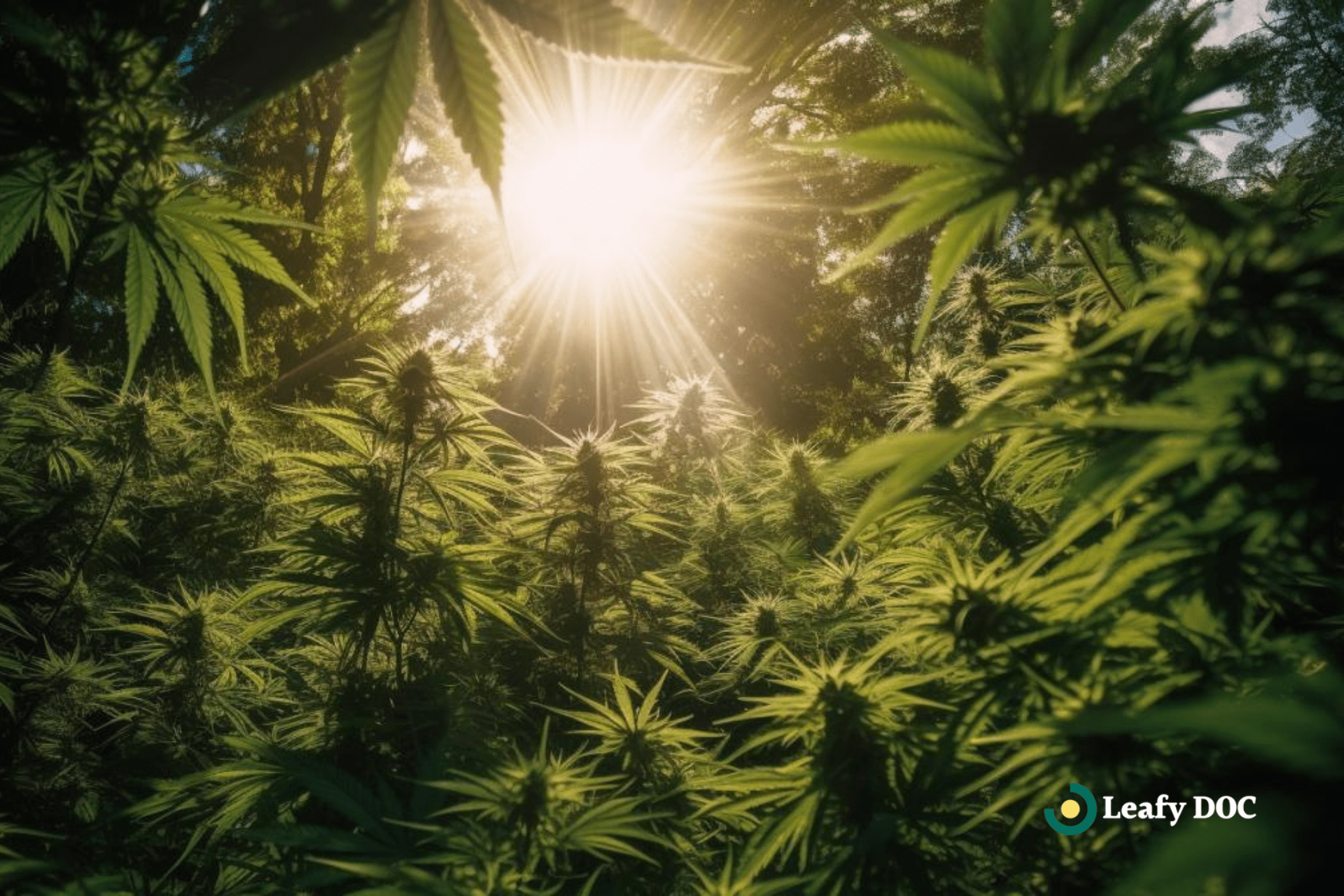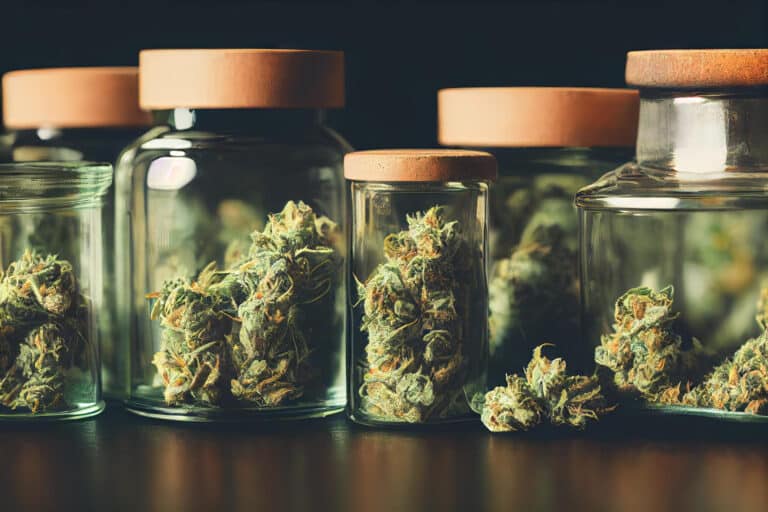The Journey To Medical Marijuana Legalization: A Look At Changing Laws
by Haley Mills · June 14, 2024
Uncover the incredible story of medical marijuana legalization and its impact on healthcare. Dive into the changing laws that are shaping a brighter future. Click here to learn more about the journey towards acceptance!

You, dear reader, have witnessed a remarkable journey unfold before your very eyes in the past decade. A journey that has traversed the realms of legality, morality, and public opinion. It is a journey that began with the criminalization of marijuana, casting a shadow of stigma upon its name.
But fear not, for the tides have turned, and a new enlightenment era is upon us. Welcome to the fascinating world of medical marijuana legalization.
Picture this: a time when the mere possession of marijuana was considered a grave offense, punishable by law. It seemed as though the walls of prohibition were insurmountable, and the prospect of legalizing the plant for its medicinal properties was but a distant dream.
Yet, the tides began to shift through the tireless efforts of activists, advocates, and a growing body of scientific evidence. Medical marijuana emerged as a beacon of hope, promising relief to those suffering from chronic pain, seizures, and a myriad of other ailments. And so, the journey to legalization began, fueled by the subconscious desire for freedom, the right to choose one’s own path to healing.
The Early Days: Criminalization of Marijuana
You may be surprised to learn that the criminalization of marijuana, which is our current subtopic, started way back in the early days. In fact, marijuana was initially criminalized in the early 1900s, driven by various political and social factors.
During this time, there was a growing fear and prejudice against marijuana, fueled by sensationalized stories and propaganda that painted the plant as a dangerous and addictive drug. Racial biases further perpetuated this fear, as marijuana use was associated with communities of color, particularly Mexican immigrants.
As the criminalization of marijuana gained momentum, laws were passed across the United States that made the possession, sale, and use of marijuana illegal. The penalties for marijuana-related offenses became increasingly severe, with individuals facing imprisonment and hefty fines. These strict laws not only restricted personal liberty but also hindered scientific research on the potential medical benefits of marijuana.
Despite the criminalization, marijuana continued to be used for various purposes, including medicinal use. Many individuals believed in the healing properties of marijuana and sought relief from their ailments through its use. However, the criminalization made it difficult for patients to access marijuana and forced them to rely on alternative and often less effective treatments.
The criminalization of marijuana in the early days was a significant setback for those seeking freedom to use marijuana for medicinal purposes. However, it also laid the foundation for the eventual fight for medical marijuana legalization. As attitudes towards marijuana began to shift and more scientific research was conducted, people started to question the validity of the criminalization laws.
Medical Marijuana: A Growing Movement
With medical marijuana becoming increasingly popular, it’s no surprise that the movement is gaining momentum. People are realizing this natural medicine’s potential benefits and demanding their right to access it.
Here are some reasons why the medical marijuana movement is growing stronger every day:
- Relief from pain: Many individuals have found that medical marijuana provides much-needed relief from chronic pain conditions. It can be a safer and more effective alternative to addictive opioids.
- Treatment for various illnesses: Medical marijuana has shown promise in treating a wide range of illnesses, including epilepsy, multiple sclerosis, and cancer. People are eager to explore these potential benefits for themselves or their loved ones.
- Improved quality of life: For some individuals, medical marijuana can significantly improve their overall quality of life. It can help with sleep disorders, anxiety, and even appetite stimulation for those undergoing chemotherapy.
- Natural and holistic approach: The medical marijuana movement is driven by a desire for a more natural and holistic approach to healthcare. Many people are tired of relying solely on pharmaceutical drugs and are seeking alternatives that are gentler on the body.
- Advancements in research: As more states legalize medical marijuana, there is an opportunity for further research and understanding of its potential benefits. This growing body of research is fueling the movement and providing evidence for its efficacy.
The medical marijuana movement is not just about access to a plant; it’s about the freedom to choose how you manage your own health. People are realizing that they have the right to explore different treatment options and make informed decisions about their well-being. As the movement continues to gain traction, the hope for a future where medical marijuana is widely available and accepted becomes more attainable.
The Legalization Trend: State by State
Across the United States, states are steadily moving towards the legalization of medical marijuana, each with their own unique approach.
You may be wondering why this trend is happening and what it means for you. Well, let me tell you, it’s all about freedom. People are realizing that they should have the right to make decisions about their own health and well-being, without the interference of the government. And medical marijuana is just one example of this growing movement towards personal freedom.
In some states, like California and Colorado, medical marijuana has been legalized for years, and the results have been overwhelmingly positive. Patients who suffer from chronic pain, cancer, and other debilitating conditions have found relief through the use of medical marijuana. Not only that, but the legalization of medical marijuana has also brought about economic benefits, with the creation of jobs and the generation of tax revenue. It’s a win-win situation for everyone involved.
Other states are starting to take notice and are following suit. They see the success and the benefits of medical marijuana legalization, and they want a piece of the pie. States like New York, Florida, and Pennsylvania have recently passed laws allowing for the medical use of marijuana, and more states are sure to follow.
The Impact on Public Health and Safety
By embracing medical marijuana, you can gain a deeper understanding of the potential impact on public health and safety. While there are varying opinions on the topic, it is vital to consider the potential benefits and risks associated with its legalization. To help you navigate this complex issue, let’s take a closer look at the impact of medical marijuana on public health and safety.
| Potential Benefits | Potential Risks |
|---|---|
| Alleviates pain and discomfort for patients with chronic illnesses | Increased risk of addiction and substance abuse |
| Reduces symptoms of epilepsy, multiple sclerosis, and other neurological disorders | Impaired cognitive function and memory |
| Provides relief for patients undergoing chemotherapy and radiation | Potential increase in motor vehicle accidents |
| Offers an alternative treatment option for mental health conditions such as anxiety and depression | Lack of standardized dosages and quality control |
| May decrease opioid use and overdose rates | Potential negative effects on lung health |
The Future of Marijuana Legalization
In the ever-evolving landscape of cannabis acceptance, the future of marijuana legalization appears to be a blossoming flower, ready to release its full potential. As the movement gains momentum, more and more states are embracing the idea of legalizing marijuana for both medical and recreational use. Here are three reasons why the future of marijuana legalization is bright:
- Economic Growth: The legalization of marijuana has the potential to create a booming industry that can stimulate economic growth. From cultivation and production to retail and tourism, the marijuana industry can generate jobs and tax revenue for states that choose to legalize. This economic boost can help stimulate local economies, create employment opportunities, and fund public services.
- Criminal Justice Reform: The prohibition of marijuana has led to countless arrests and convictions, disproportionately affecting communities of color. By legalizing marijuana, we can address the racial disparities in drug enforcement and reform our criminal justice system. Legalization can free up law enforcement resources to focus on more serious crimes and reduce the burden on the prison system.
- Personal Freedom: The future of marijuana legalization is not just about the plant itself, but about the fundamental right to personal freedom. People should have the autonomy to choose their own bodies and lifestyles, as long as they don’t harm others. The legalization of marijuana represents a step towards a society that values individual liberty and respects personal choices.
As we look ahead, it’s clear that the future of marijuana legalization holds great promise. With economic growth, criminal justice reform, and personal freedom at stake, the movement toward legalization continues to gain momentum. It’s an exciting time for those who’ve long advocated for the end of marijuana prohibition, and a time of liberation for those who its criminalization has unfairly impacted.
Frequently Asked Questions
How did the criminalization of marijuana in the early days impact minority communities?
The criminalization of marijuana in the early days had a devastating impact on minority communities. It disproportionately targeted and penalized people of color, leading to increased incarceration rates and perpetuating systemic inequality.
What are the potential economic benefits of the growing medical marijuana movement?
The potential economic benefits of the growing medical marijuana movement are vast. From job creation and tax revenue to investment opportunities, the industry has the power to stimulate local economies and fuel innovation. Embrace the green revolution!
How does the legalization trend vary from state to state in terms of regulations and restrictions?
In terms of regulations and restrictions, the legalization trend varies from state to state. Some states have more lenient laws, allowing for broader access to medical marijuana, while others have stricter regulations in place.
What are some potential obstacles that could hinder the future of marijuana legalization at the federal level?
Some potential obstacles that could hinder the future of marijuana legalization at the federal level include political resistance, concerns about public health and safety, and the influence of pharmaceutical companies. But don’t lose hope, change is possible!
Last Updated: August 8, 2024
Get Approved for Your Medical Marijuana Card in Minutes!

Get Your Medical Card
Connect with a licensed physician online in minutes

Like This Article?
Share with your friends
Table of Contents
Keep Reading
-
How to Cook Weed: Step-by-Step Guide to Infusing Cannabutter
Learn how to cook weed with our step-by-step guide to infusing cannabutter effectively.
-
Refreshing Cannabis-infused Beverage Recipes To Try
Indulge in a selection of refreshing cannabis-infused beverage recipes for an elevated experience. Try these delicious drinks today and treat yourself to a rejuvenating sip of relaxation!
-
How to Properly Store Cannabis Flower So That It Lasts
If you want your cannabis flower to last, you need to store it properly! Here’s a guide on how to do just that.



